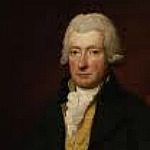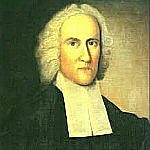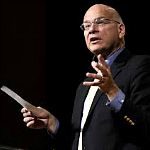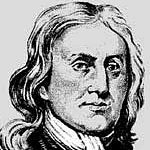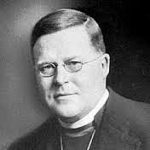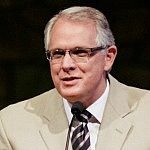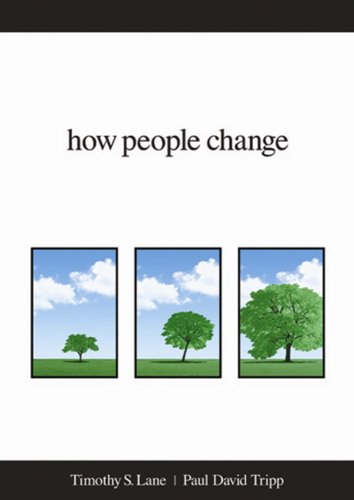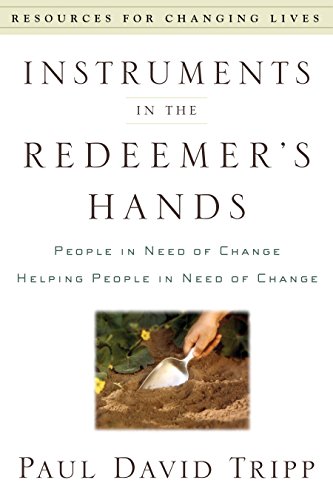Quotes about Pride-Results
Those who think too much of themselves don’t think enough.
A proud faith is as much a contradiction as a humble devil.
A Puritan Golden Treasury, compiled by I.D.E. Thomas, by permission of Banner of Truth, Carlisle, PA. 2000, p. 223.
And what else is the cause of all transgression, but that man’s ignorant pride will have his will preferred to the will of God.
Proud people focus on the failures of others and can readily point out those faults. Broken people are more conscious of their own spiritual need than of anyone else’s.
Brokenness, The Heart God Revives, Moody Publishers, 2002, p. 88. Get this book!
Proud people have a feeling – conscious or subconscious – that “this ministry is privileged to have me and my gifts.” They focus on what they can do for God. Broken people have a heart attitude that says, “I don’t deserve to have any part in this ministry”; they know that they have nothing to offer God except the life of Jesus flowing through their broken lives.
Pride manifests itself in so many subtle, but lethal ways… In a hidden desire for the praise and admiration of men, an insistence on being “right,” the desire to be noticed and appreciated, fear of rejection, or just pre-occupation with myself my feelings, my needs, my circumstances, my burdens, my desires, my successes, my failures. These are all fruits of that deadly root of pride.
Pride is subtle and shape-shifting. There is more of it at work in our hearts than we know, and more of it pulsing through our busyness than we realize. Pride is the villain with a thousand faces: People-pleasing, Pats on the back, Performance evaluation, Possessions, Proving myself, Pity, Poor planning, Power, Perfectionism, Position, Prestige and Posting. Here’s the bottom line: of all the possible problems contributing to our busyness, it’s a pretty good bet that one of the most pervasive is pride. It’s okay to be busy at times. You can’t love and serve others without giving of your time. So work hard; work long; work often. Just remember it’s not supposed to be about you. Feed people, not your pride.
Adapted from Crazy Busy by Kevin DeYoung copyright 2013, Crossway Books, a division of Good News Publishers, Wheaton Illinois 60187, www.crosswaybooks.org, p. 35-37, Used by Permission. Get this book!
Spiritual pride is very apt to suspect others, but a humble saint is most jealous of himself. He is as suspicious of nothing in the world as he is of his own heart. The spiritually proud person is apt to find fault with other saints…and to be quick to notice their deficiencies. But the eminently humble Christian has so much to do at home, and sees so much evil in his own heart, and is so concerned about it, that he is not apt to be very busy with other hearts… Pure Christian humility disposes a person to take notice of everything that is good in others, and to make the most of it, and to diminish their failings, but to give his eye chiefly on those things that are bad in himself.
A person may be full of talk about his own [religious] experiences. But often it is more a bad than a good sign. It is like a tree that is full of leaves that seldom bears much fruit. Or it is like a cloud which, although it appears to promise much fullness of rain, is only wind to a dry and thirsty earth… Strong, false affections are much more likely to declare themselves than true ones. It is the nature of false religion to be showy and visible as it was with the Pharisees.
Pride is blindness to our faults, sins, and failings. Most importantly, pride is blind to the existence of itself. Therefore, the more proud you are, the more humble you will feel, and the more humble you are, the more proud you will feel. That is because true humility is the opening of the eyes to our personal sin, and one of the first things a humble person becomes aware of is his or her pride.
Gospel-Powered Parenting, 2009, P&R Publishing, p. 115, Used by Permission. Get this book!
The ego is incredibly busy – in other words, it is always drawing attention to itself. It is incredibly busy trying to fill the emptiness. And it is incredibly busy doing two things in particular – comparing and boasting.
Spiritual pride is the illusion that we are competent to run our own lives, achieve our own sense of self-worth and find a purpose big enough to give us meaning in life without God.
You can have no greater sign of confirmed pride than when you think you are humble enough.
Pride gets no pleasure out of having something, only out of having more of it than the next person. We say that people are proud of being rich or clever or good looking, but they are not. They’re proud of being richer, or cleverer, or better looking than others. If everyone else became equally rich, or clever, or good looking there would be nothing to be proud about.
It was through Pride that the devil became the devil: Pride leads to every other vice: it is the completely anti-God state of mind.
The reality is that all expressions of sin flow out of dominant pride in the human heart. Pride then is the core corruption. Self-worship is what real fallenness is all about. Every other sin rises out of the soil of pride. Everything grows in the ground of pride. Pride is the damning sin that produces rebellion against God. Every kind of rebellion and all sin is lawlessness. All sin is rebellion against God, all of it produced by pride. Pride seeks to dethrone God. It seeks to un-god God. It seeks to strike a fatal blow at His sovereignty and His majesty and to replace God with self. Pride grips the sinner’s heart.
The Mark of True Greatness, Part 1, Luke 9:46–48, This article originally appeared (https://www.gty.org/library/sermons-library/42-130/the-mark-of-true-greatness-part-1) at www.gty.org. © 1969-2008. Grace to You. All rights reserved. Used by permission.
The following are a smattering of examples of the “fig leaves” we wear:
1. We change the subject or crack jokes if an awkward or threatening subject arises.
2. We monopolize conversation, filling silences to keep others at bay and to keep from feeling like failures.
3. We live or die vicariously with a sports team.
4. We run from problems by watching TV, drinking, smoking, promiscuity, workaholism, compulsive eating.
5. We mock or “put in a box” those whose opinions or problems threaten our own commitments and behavior.
6. We get defensive, accusatory, testy, or talk loudly, or try to bully others to defend ourselves and make a show of competency.
7. We overdo penance by saying, “Poor me; I’m so horrible and such a failure,” by expressing maudlin repentance and wallowing in failures.
8. We minimize the seriousness of problems – “It’s nothing” – or the difficulty of change – “I promise “l’ll never do it again.”
9. We lie outright, to look good or to avoid looking bad.
10. We lie subtly, putting ourselves in the best light by innuendo, embellishment, or careful selection of data. This often accompanies subtle expressions of contempt or criticism for other people.
11. We think highly of our own opinions on every issue.
12. We tie up our identity in certain grandiose roles, like “counselor” or “parent” or “pastor.” Any of our functions and successes, real or imagined, can become fodder for self-deception.
13. We pray for help before performing a certain responsibility, and then rehearse our own success afterwards without thought of God.
Seeing With New Eyes, P&R Publishers, 2003, p. 189-190. Get this book!
It is man’s most monumental effrontery to imagine that a selfish, petty collection of unworthy desires such as himself belongs in the center, even of his own life. The insidious nature of pride is such that men and women rarely appreciate how proud they are, and the index of pride’s power over the heart is that even the purest motions of the Christian soul are deeply affected by it.
Let us watch against pride in every shape – pride of intellect, pride of wealth, pride in our own goodness, pride in our own deserts. Nothing is so likely to keep a man out of heaven, and prevent him seeing Christ, as pride. So long as we think we are something, we shall never be saved.
Pride is a sinner’s torment, but humility a saint’s ornament.
Strong Christians refuse to make it about themselves and the engagement in petty battles. It’s not about personal vendettas, but winning the war for Jesus. Weak people get easily offended and use their energy to defend their wounded ego. Their will and their kingdom now becomes more important than God’s will and kingdom. And when Christians get there, they are in the flesh and being used by the devil. They are defeated.
Sermon, Single-Minded Devotion, Luke 9:51-62, February 10, 2019.|Sermon, Single-Minded Devotion, Luke 9:51-62, February 10, 2019.
What are some characteristics of pride? Thinking more of myself than I do of God. Believing I am better than others. Not being willing to admit weaknesses. Being unteachable. Inability to delegate. Having a primary goal of serving myself. Wanting to lead to receive personal glory. Needing to always be honored and appreciated. Overconfidence. Unsubmissiveness. Worry. Unwillingness to be corrected. Not asking for help. Continually correcting others. Ignoring the spiritual disciplines of prayer, church and Bible. Feeling morally superior to others. Talking more than listening. Refusing to ask for forgiveness. Being overly sensitive.
The world’s smallest package is a man wrapped up in himself.
I make myself, in a host of ways, the center of the universe.
Why do any of us get upset or tense when confronted? Why do any of us activate our inner lawyer and rise to our own defense? Why do any of us turn the tables and remind the other person that we are not the only sinner in the room? Why do we argue about the facts or dispute the other person’s interpretation. We do all of these things because we are convinced in our hearts that we are more righteous that how than we are being portrayed in the moment of confrontation. Proud people don’t welcome loving warning, rebuke, confrontation, question, criticism, or accountability, because they don’t feel the need for it. And when they do fail, they are very good at erecting plausible reasons for what they said or did, given the stress of the situation or relationship in which it was done.
Self-Glory by Paul David Tripp taken from Dangerous Calling by Paul David Tripp, copyright 2012, Crossway Books, a division of Good News Publishers, Wheaton Illinois 60187, www.crosswaybooks.org, p. 178.
Proud people tend to talk about themselves a lot. Proud people tend to like their opinions more than the opinions of others. Proud people think their stories are more interesting and engaging than others. Proud people think they know and understand more than others’. Proud people think they’ve earned the right to be heard. Proud people think they have glory to offer. Proud people, because they are basically proud of what they know and of what they’ve done, talk a lot about both. Proud people don’t reference weakness. Proud people don’t talk about failure. Proud people don’t confess sin. So proud people are better at putting the spotlight on themselves than at shining the light of their stories and opinions on God’s glorious and utterly undeserved grace.
Self-Glory by Paul David Tripp taken from Dangerous Calling by Paul David Tripp, copyright 2012, Crossway Books, a division of Good News Publishers, Wheaton Illinois 60187, www.crosswaybooks.org, p. 175-176.
The Christian community tips its hat to the nobility of meekness, but in practice pride often wins the day.


